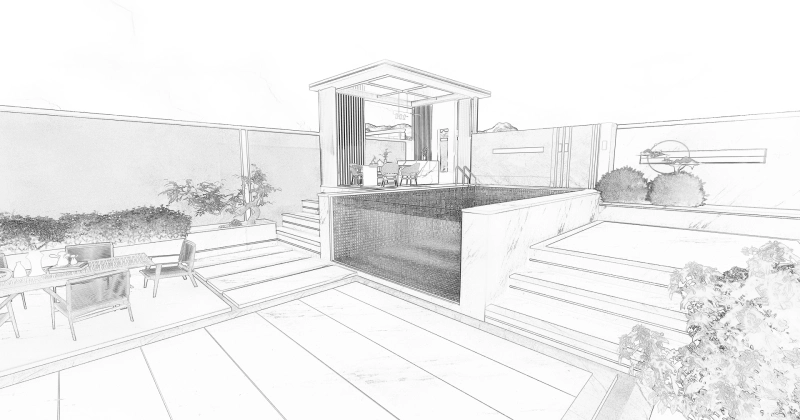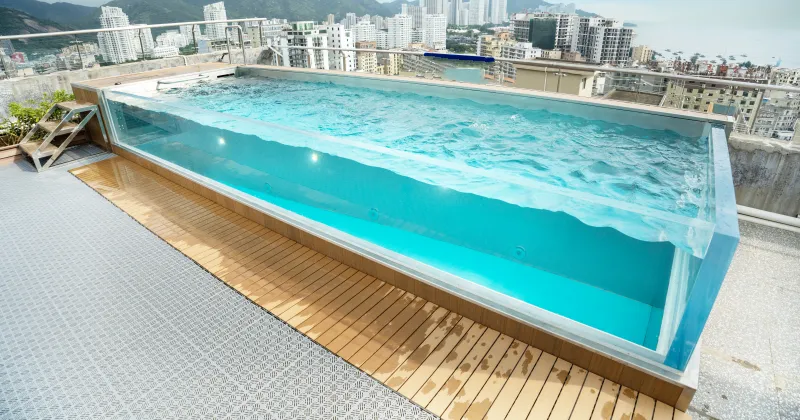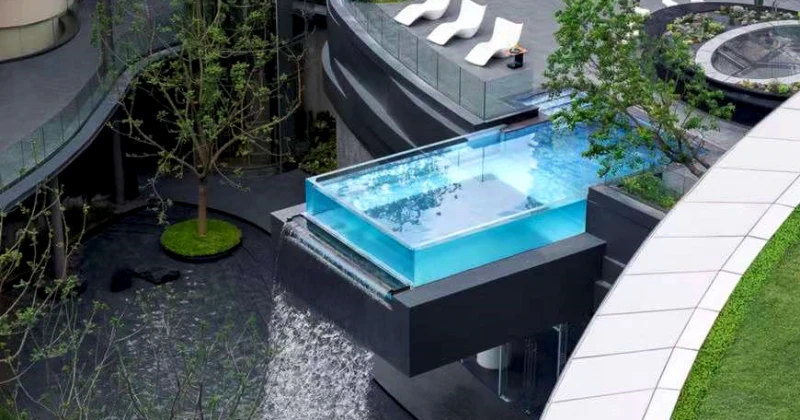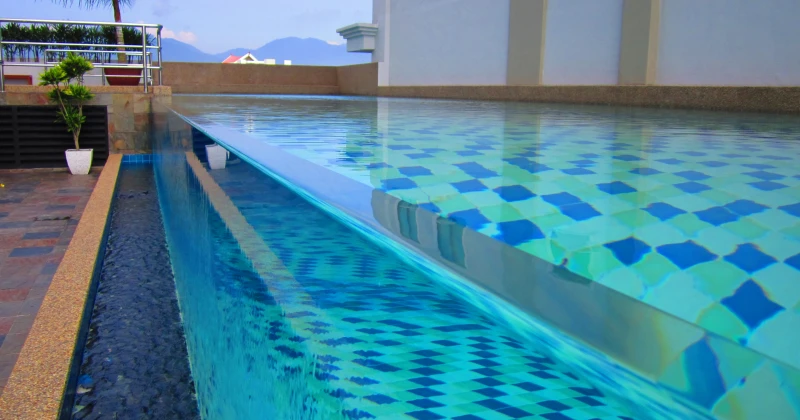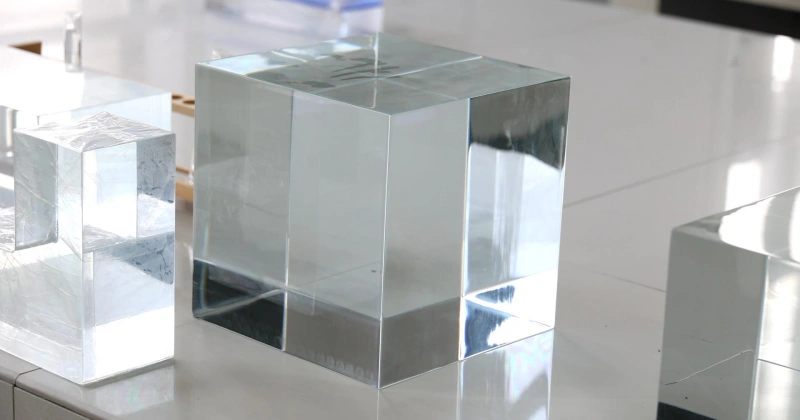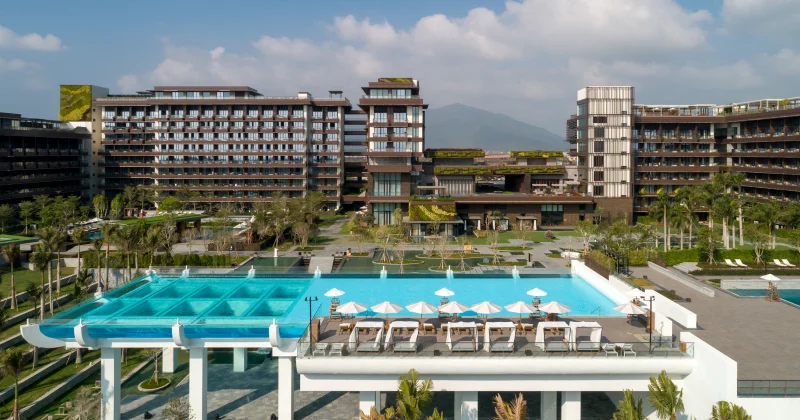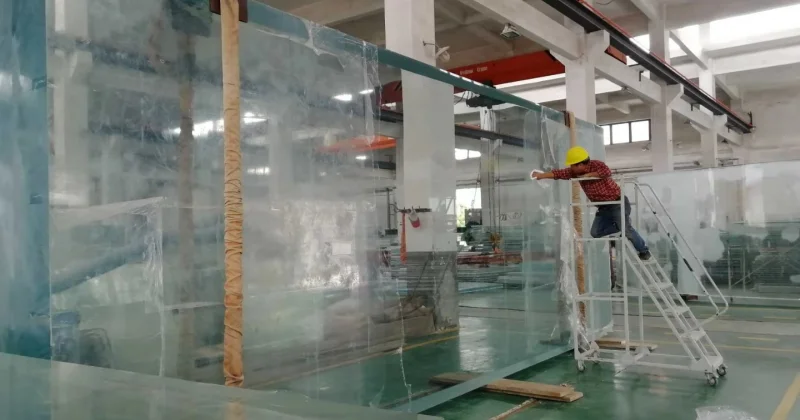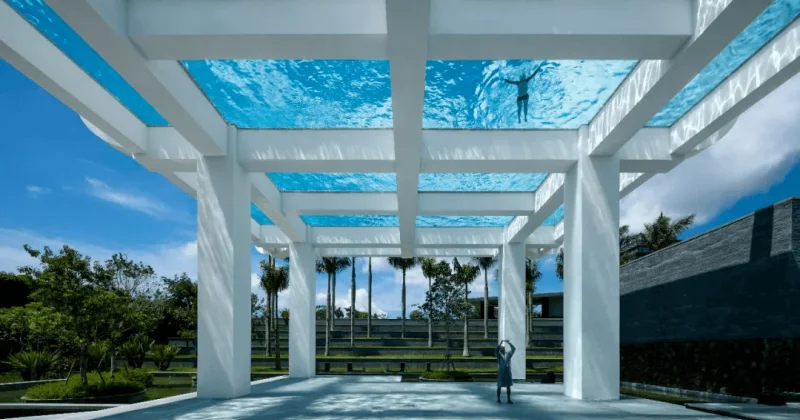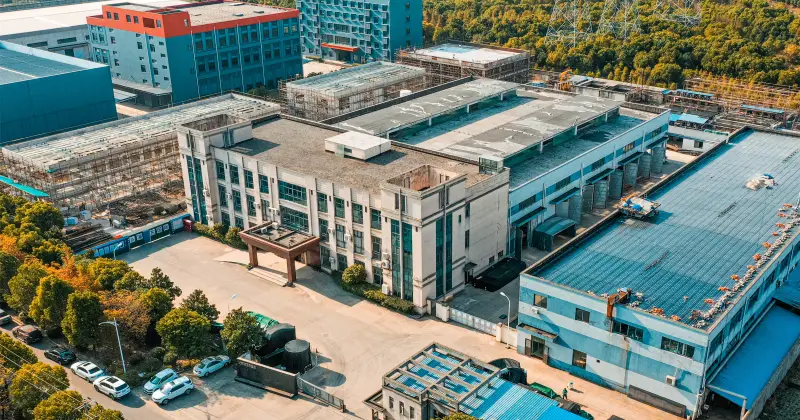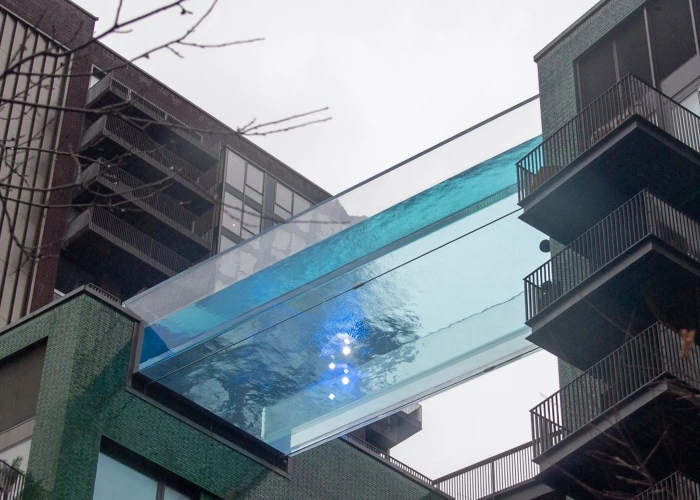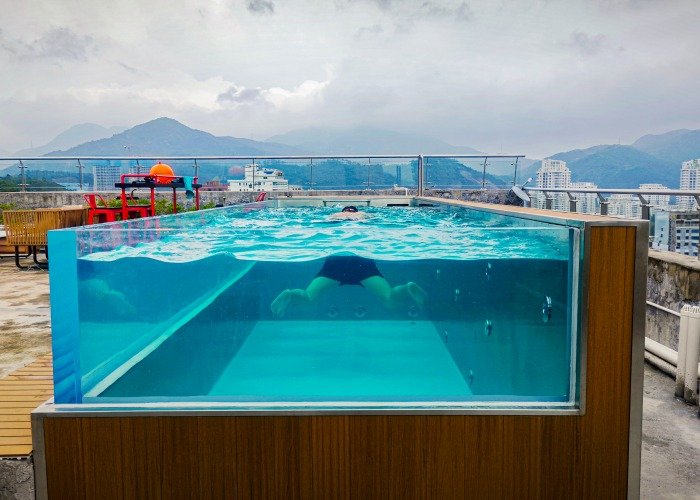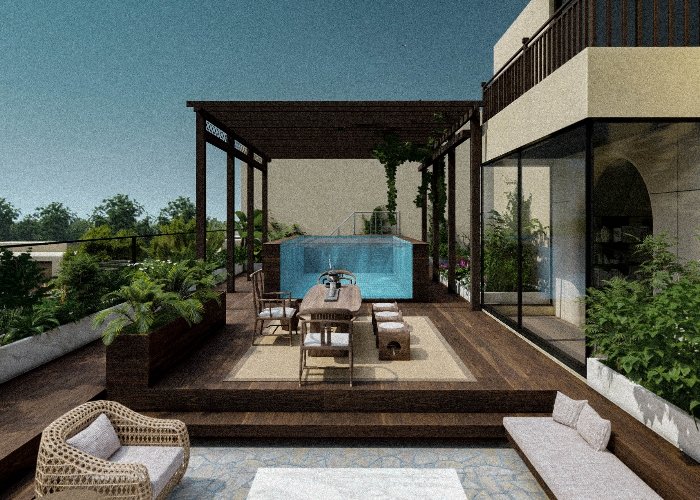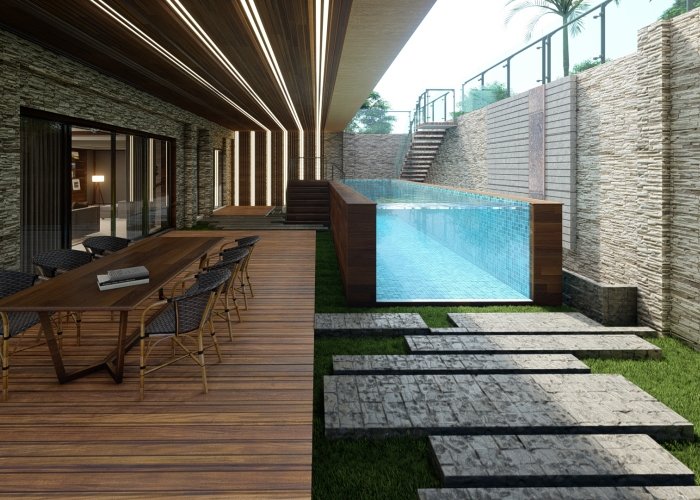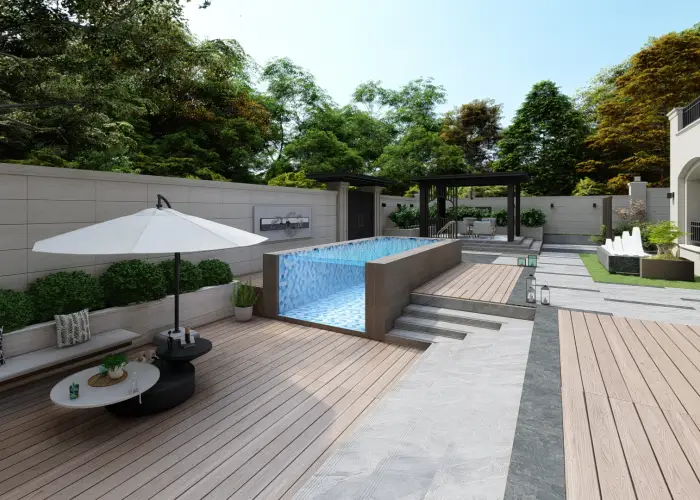
A Buyer's guide to prefabricated pools: What to look for
A swimming pool complements any house best. It serves two relaxing purposes: an enjoyable activity and a way to cool off on a hot day. However, building a standard swimming pool requires considerable money and time. Fortunately, in such scenarios, a prefabricated swimming pool serves the purpose perfectly.
Pre-constructed pools are far less expensive and easier to construct than traditional pools. These pools come in ready-to-assemble parts and fully assembled variants requiring no complex construction. A wide variety of prefabricated pools are available in different designs, sizes, and materials, thus allowing homeowners to make decisions based on their budgets and requirements.
When considering investing in a prefab pool, it is critical to know what a prefab swimming pool is, its advantages, and factors that should be considered before buying one. It can be overwhelming, so this guide will help you sort through the details so that you can conclude.

Understanding Prefabricated Swimming Pools
A prefabricated pool is built in a factory and then transported to the location where it is set up and installed. This type of pool is a far more efficient option than a concrete pool, which needs to be constructed on-site and takes months or more to fully complete due to the extensive build process. A prefabricated pool can be installed in weeks!
There are numerous kinds of pools, such as container pools, fiberglass models, and even vinyl-lined pools, that come with prefabricated structures. Some pools are delivered as a single unit, while others come in pieces and require a post-delivery assembly. Due to their durability, ease of maintenance, and extensive customization options, prefab pools have become a go-to option for homeowners seeking an uncomplicated swimming pool solution.

Why Choose Prefabricated Swimming Pools?
Many homeowners find that prefabricated pools offer several advantages over traditional ones, making them an attractive option. When considering prefabricated pools, think about these primary benefits:
- Faster Installation – The use of pre-built components allows for pools to be installed in days instead of the months that traditional pools would take. These types of pools can be constructed within a few days.
- Cost-Effective – The cost of prefabricated swimming pools is considerably lower than that of in-ground concrete pools due to reduced material and labor requirements.
- Durability – The use of fiberglass and high-quality vinyl materials makes prefab pools durable and able to last for years.
- Less Maintenance – Many prefab pools come pre-installed with an algae-resistant smooth surface, which requires minimal cleaning and maintenance.
- Portability – Certain types of prefab pools, like prefab container swimming pools, can be relocated from one place to another quite easily.
- Customization – Different designs, dimensions, and custom options are available depending on your requirements and the space you have on hand.
From small plunge pools to large family-friendly models, prefab pools offer a variety of choices to meet different needs and budgets.
9 Things to Consider Before Buying a Prefabricated Pool
Choosing a prefab pool demands thorough consideration of various crucial elements. This article will outline nine aspects that you must keep in mind.

1. Type of Prefab Swimming Pool
How a pool is selected influences its durability, maintenance level, and aesthetic value. Every type of prefab pool offers unique benefits and drawbacks.
- Fiberglass pools – Fiberglass pools are pre-molded structures that demand minimal maintenance but offer limited customization possibilities.
- Vinyl liner pools – Vinyl liner pools are initially cheaper but demand liner replacement every five to seven years.
- Metal panel pools: Metal panel pools provide strength and customization options, but they need proper treatment to prevent rust.
- Prefab container swimming pools – Shipping containers that were recycled serve as the construction material for these swimming pools, which deliver modern aesthetics along with great portability.
When selecting your pool type, you need to consider your budget constraints along with your desired style and future upkeep requirements.

2. How Much Space is Available for the Pool?
The dimensions and configuration of your pool will largely depend on the area that is currently available in your backyard. It’s important to scan the entire yard and think of things more than the pool size alone.
- You need precise measurements of your space to make sure that the pool will fit properly.
- You need to evaluate how decks, landscaping elements, and designated seating regions fit into your pool area design.
- Make sure your property meets pool installation regulations by reviewing local zoning laws.
The right layout design will allow your pool to enhance your outdoor space without creating a cramped appearance.
3. Pool Construction (Design, Material, etc.)
Your prefab pool's construction quality determines its durability and maintenance requirements, as well as how long it will last. The design and materials selected for your prefab pool must match your extended goals.
- Material selection – Fiberglass requires less maintenance, and it has a smoother surface. Vinyl is more affordable, and metal pools provide the best strength structurally.
- Shape and depth – Rectangular pools are the best for swimmers looking to do lap swimming, while round or kidney-shaped pools are more visually appealing.
- Built-in features – Some prefab pools come with integrated features like steps, seats, and splash walls.
Selecting a high-quality pool guarantees long-lasting performance with minimum maintenance needs.
4. Initial Costs and Financing Options
Understanding the financial implications regarding the buying of a prefab pool allows you to make sound decisions. The price of prefab pools varies according to their size, construction materials, and additional features.
- Fiberglass pools generally cost between $20,000 and $40,000.
- As for vinyl pools, they typically start at around $10,000, although eventually, a liner will have to be replaced.
- Prefabricated container swimming pools are priced anywhere from $20,000 to $50,000, depending on the level of customization chosen.
The right budgeting approach allows you to select the optimal pool that fits your financial limits.
5. Long-Term Value and Appreciation
Though a prefab pool adds value to your property, it requires continued upkeep to keep its aesthetic appeal intact.
- A pool that is well-maintained not only increases the property's resale value but also attracts prospective buyers.
- If a pool is not properly maintained, the entire property becomes less appealing to buyers due to the added liability.
- When a pool is aesthetically integrated with the surrounding landscaping design, it boosts the home's general attractiveness.
Choosing a high-quality pool leads to enduring advantages along with possible financial gains.
6. Energy Efficiency and Environmental Impact
Eco-friendly pools not only reduce operational costs but also minimize environmental impact.
- Solar heating systems increase energy efficiency.
- Electricity spending is reduced with the use of energy-saving pumps and LED lights.
- The use of saltwater pools aids in the reduction of harsh chemical treatment for pools.
- Recycling through repurposing is enhanced with the use of prefab container swimming pools.
Choosing an energy-efficient pool enables you to lower costs and protect the environment.

7. Customization Options
Even though prefab pools come entirely constructed, you can still personalize them to fit your preference.
- A selection of tiles and liners creates an endless combination of color and texture options.
- Built-in seating and tanning ledges enhance usability.
- Users can remotely set the temperature of the pool or change the filtration settings using smart pool controls.
- Waterfalls and other water features make the pool designs luxurious.
Customization allows your pool to showcase your personal style and unique preferences.

8. Family and Child Safety
Pool installation demands extensive safety measures and risk management, especially in homes with children and pets.
- Pool fences to prevent access by unauthorized individuals.
- Select slip-resistant materials for your decking to significantly reduce fall risks.
- Secure your pool area by installing pool covers combined with alarm systems.
- Utilize pools with shallow depths and gradual entry systems to decrease the risk of pool-related accidents among children.
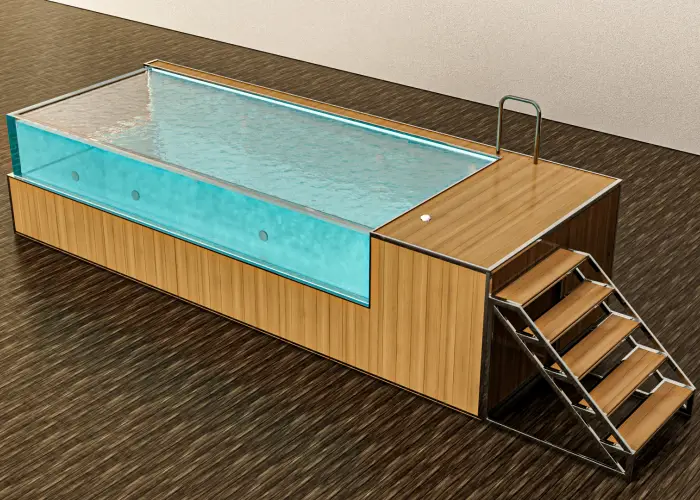
Conclusion
For modern homeowners, prefabricated swimming pools are an economical and stylish solution that can offer a backyard swimming pool within a short time. Choosing a type of prefab container swimming pool is a decision that involves a lot of thoughtful planning to ensure that all your specific needs will be met appropriately.
It is wise to analyze all available types, materials, and customization costs, along with their safety features, before buying a swimming pool. The value of your property can increase instantly with a custom prefab pool installation, which will provide years of relaxation and entertainment. By spending some time doing your research, you will be able to find the most suitable prefab pool that meets your budget and living standards.






